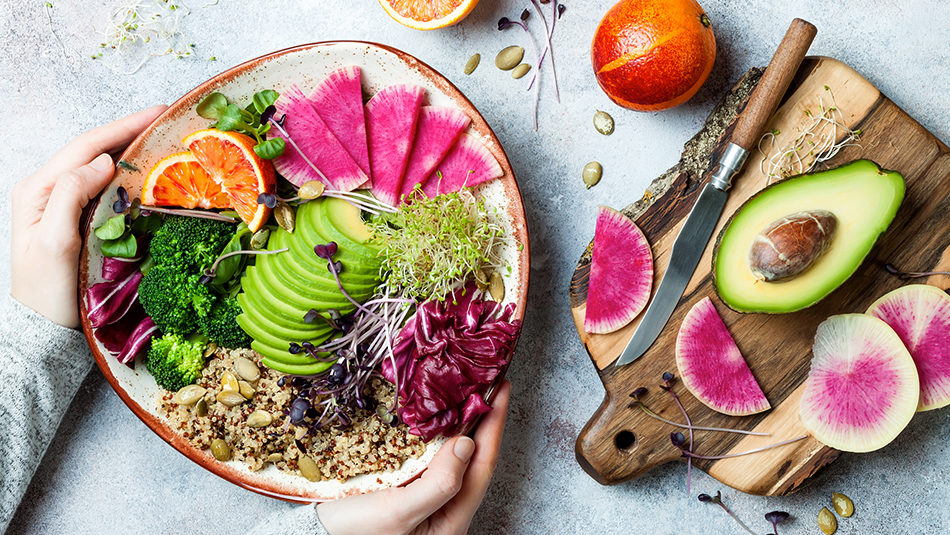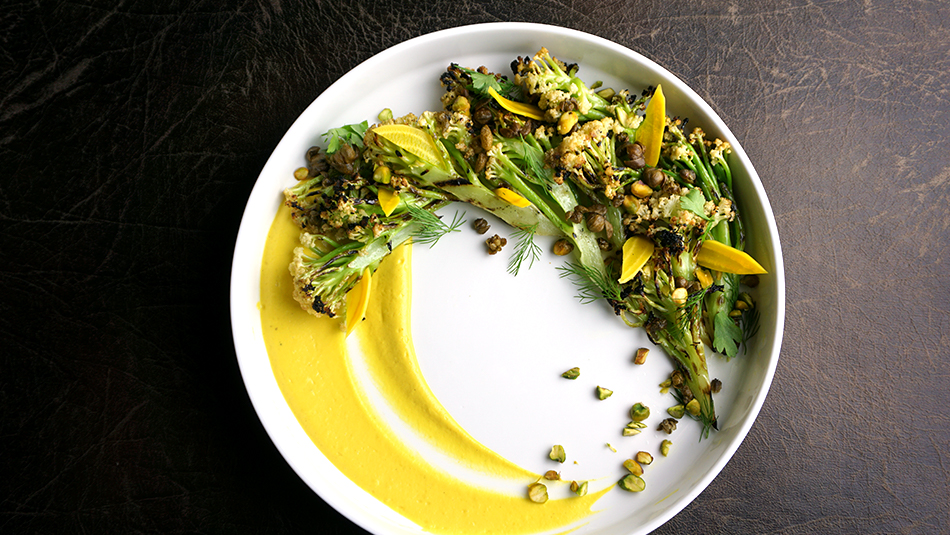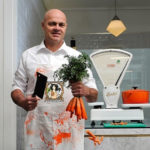
Plant-Based or Not, Here is How to Join the Conversation
In the past year, sales of plant-based foods grew 11 percent, bringing the plant-based market to $4.5 billion, as reported in Forbes, July 22, 2019. What’s more, the number of new U.S. food and drink products mentioning “plant-based” grew 268 percent between 2012 and 2018, according to Mintel. Suffice it to say, this sector of the food industry is filled with opportunity right now.
That’s great if you are promoting the next Impossible Burger, but what if your product (like my client’s) isn’t plant-based? You may be left pondering, “can my food brand authentically leverage this momentum?” With sustainability underpinning the plant-based movement, you will discover – like we did – there is plenty of room at the table if you’re ready to take a position.
Plant-based and Plant-forward Isn’t an All or Nothing Proposition
Attending the 7th annual Menus of Change conference, hosted by the Culinary Institute of America in partnership with Harvard T.H. Chan School of Health, it’s clear that sustainability is more than a buzzword in this circle. It is a business imperative that transcends industries. And when it comes to food, plant-based and plant-forward are at the center of this conversation.
Drawing together a diverse group of thought leaders, entrepreneurs, decision makers and policy visionaries, the event’s agenda covered topics ranging from biodiversity to animal welfare to zero waste. Underpinning this was a review and discussion of the just-released EAT-Lancet report, which provides compelling data to suggest a plant-based diet is not only better for the body, but critical for the planet.
We went through careful evaluation as we considered recommending this year’s event to my client, the National Honey Board (NHB). Did it make sense for us? We knew we had a great product and story in honey, but at the end of the day, honey isn’t a plant-based product. Still, the group’s annual report defines plant-forward as, a style of cooking and eating that emphasizes and celebrates, but is not limited to, plant-based foods and reflects evidence-based principles of health and sustainability.
With this, it was clear honey was a fit. First, it’s wholesome and all natural; second, it is closely tied to sustainability through honey bees and pollination; and third, it is both delicious and highly functional as a “clean label” ingredient.
A key takeaway for me, was that plant-based/plant-forward isn’t an all or nothing proposition; it’s about companies and individuals interested in doing better, for people and the planet. So, realizing there are a lot of brands out there who are in this position, I wanted to offer a few tips to help you find your own, authentic way into this important conversation.
Know Yourself.
At its core, plant-based is very much about sustainability, and so the imperative is to know your own sustainability story. Even if your product isn’t plant-based, you may have a rich, compelling narrative. Whether you are in the plant-based, red meat, poultry, dairy or other arenas, every product and brand has a unique backstory (production, sourcing, operations, etc.), many of which tie to the “sustainability” theme enveloping the plant-forward movement.
Take honey, for example. It is inextricably linked to the food supply and the planet through honey bees and pollination. In fact, honey bees are responsible for 80 percent of the pollination that makes 1/3 of our diet possible – including most fruits and vegetables. You cannot have a meaningful conversation about honey without giving a nod to the hardworking honey bee – the world’s leading pollinator – and beekeepers, who are their stewards. We indeed have a profound story that fits within the sustainability sphere.
So, what’s your sustainability story? Can you capture it in 100 words or less, as we were tasked with as part of Menus of Change? Visiting the Menus of Change website, you will see every sponsor statement is different. That’s not only okay, but welcomed.
Show Up.
Support plant-based conferences. Join the conversation, even if that means listening at first. We met several other marketers/sponsors at the past event from dairy and other spaces. Each had a great story to tell. They did not shy away from attending, even though they aren’t plant-forward brands. The dairy brand, in fact, has a rich sustainable agriculture heritage which connects it to the conference theme. A poultry producer also served as a conference sponsor, based on its commitment to animal welfare and nutrition, and leading quality/safety practices. There was no “one size fits all” when it came to the sponsors, speakers or participants; just a group unified by its commitment to better serving people and the planet.
Innovate and Demonstrate.
Develop recipes that are plant-focused even if your ingredient isn’t. We demonstrated honey’s role in deliciously innovative (and mostly savory) plant-forward recipes at Worlds of Flavor, flanked by our uber-talented chef partner, Ian Ramirez. In the final meal of the event, Chef Ian showcased a “nose to tail” application of honey in a menu item that left guests in awe, and insisting on the recipe. The artful dish featured grilled caulilini, beeswax-and-brown-butter confit carrots, honey-pickled beets, fermented honey and bee pollen for texture. The craveabilty factor was undeniable. After all, if a menu item doesn’t taste good – no matter how healthy or sustainable – it won’t be ordered again.

“Noble causes aside, this movement would not be succeeding if it weren’t for phenomenal flavor development in the creation of such products and menu items,” Flavor & The Menu Publisher Cathy Holley asserts in the magazine’s July/August 2019 issue.
Walk the Talk.
Once you have captured your story and begun to share it, be prepared to tell/show/demonstrate it at every touch point. Be consistent. Do your communications vehicles say “green,” or is it time to revisit them? Do your demos showcase your sustainability focus? When we sample honey-inspired beverages at industry conferences, for example, we offer National Honey Board branded bamboo reusable straws. It is important to make sustainability part of your marketing and communications DNA.
Plant-based or Not, it’s a Diverse Food Community Out There
When it comes to the sustainability or plant-based conversation, don’t worry about being like everyone else. Be yourself; know who you are. Show up, and promote your own story and brand proposition. Get creative and demonstrate how you fit in, by sharing your own unique narrative. Chances are, you will be welcomed at the table. It’s a big, diverse food community out there, with room for everyone who is committed to best (or even “better”) practices. It’s never too late to start, and that time is definitely now.






